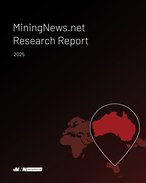This article is 4 years old. Images might not display.
The figure includes payments to suppliers, wages and benefits for employees and contractors, dividends, taxes and royalties, and voluntary investment in social projects across communities.
BHP paid $7.5 billion in taxes, royalties and other government payments, up from $7.1 billion in FY19, equating to an adjusted effective tax rate of 31.7% or 42.4% including royalties.
Total payments to the Western Australian government were A$2.77 billion.
The company highlighted its increase in local buying.
In the Pilbara, it engaged 9570 suppliers directly, up from 4557 in FY19, and spent $110 million with Pilbara suppliers between April and August, almost double the amount spent for the same period last year.
During FY20, BHP increased its Australian workforce by more than 5000 people to approximately 45,000 employees and contractors, predominantly in operational roles in Queensland, South Australia and Western Australia.
The Operations Services division brought on more than 2000 people, including 321 apprentices and trainees via the FutureFit Academy bringing on 321 mostly female apprentices and trainees.
WA Iron Ore employees and contractors increased from 11,912 to 14,118 people.
The US$3.6 billion South Flank development in the Pilbara reached a workforce of 3000 people.
Female representation has increased by almost 9%, or nearly 4000 women, since 2016.
In FY2020, BHP increased the representation of women working for the company by 2%, resulting in 1767 more female employees than at the end of FY19. Our overall representation of women is 26.5%.
The percentage of people newly hired to work for BHP in FY2020 was 60.7% male and 39.3% female, up from just 10.4% female in FY15.
Globally, BHP's total economic contribution in FY20 was US$37.2 billion, down from $46.2 billion in FY19.
"This significant contribution of taxation and royalty revenue to the countries in which we operate gives governments the opportunity to provide essential services to their citizens and invest in their communities for the future," BHP chief financial officer Peter Beaven said.
"In addition, our investment in economies creates high-paying jobs, both directly within our assets and indirectly through our suppliers, which supports the standard of living and further development of those communities."























